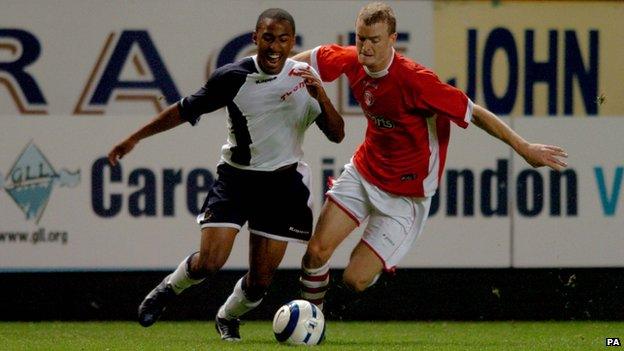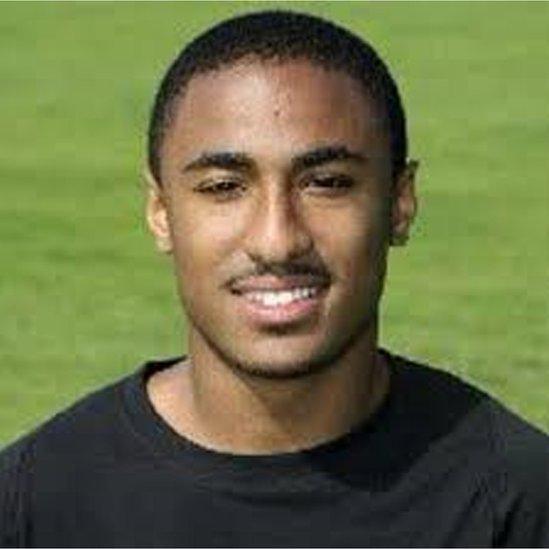Tottenham Hotspur liable for player brain damage
- Published

Radwan Hamed (left) signed for Spurs' youth team without knowing he had had an abnormal ECG
A High Court judge has ruled Tottenham Hotspur breached its duties to a 17-year-old player who suffered cardiac arrest in his first game for the club and was left brain damaged.
Radwan Hamed collapsed during the youth team game in Belgium in August 2006.
In a screening before he signed to the club, an ECG showed his heart to be "unequivocally abnormal" but he was not stopped from playing.
Damages, which could reach £7m, will be decided in due course.
'Singularly failed'
Mr Hamed's father, Raymon, claimed his injuries resulted from the negligence of Dr Peter Mills, a cardiologist who screened his son, and of the club - through Dr Charlotte Cowie and Dr Mark Curtin, specialist sports physicians it employed.
Mr Justice Hickinbottom ruled the club was 70% liable and Dr Peter Mills, the Football Association's regional cardiologist for South East England, was 30% liable.
In his ruling, the judge said Dr Cowie, who was head of the medical services department at the club, made a serious error of judgment when she concluded that the teenager bore no risk of an adverse cardiac event.
He said: "The Club doctors were not only in effect the claimant's general practitioners, but specialist sports physicians who were (or should have been) well-acquainted with the cardiac risk faced by young athletes.
"It was their responsibility, as specialist physicians and employers, to ensure that relevant risks were identified and communicated to the claimant and his parents to enable them to make an informed decision as to whether to bear them.
"In this, they singularly failed."

The teenager collapsed six minutes into his first game
'Very relieved'
In a statement, Tottenham, which the judge said was "vicariously liable" for the actions of Dr Cowie and Dr Curtin, said it "wholeheartedly regrets that a former employee... was remiss in their duties to Radwan" .
After the ruling, Mr Hamed, said: "We are very happy today because we have been waiting for this a long time. We are very relieved."
The FA requires all new entrants to football academies to be referred to a cardiologist.
This is to tackle the issue of some young athletes being prone to cardiac fibrillation which, unless treated promptly, is usually fatal.
Mr Justice Hickinbottom found in his judgment that although a form was sent by Dr Mills to the FA and the club recommending a clinical review, the FA did not book one.
'Extremely gifted'
Mr Hamed, who is now 26, had an MRI scan and it showed no obvious features of hypertrophic cardiomyopathy (HCM) - the condition that ultimately led to his collapse - but Dr Mills wrote to Spurs saying HCM could not be excluded on these findings alone.
Eleven months later, with no further tests having taken place and Mr Hamed not knowing his ECG had been "abnormal", he signed a contract with Spurs.
The teenager collapsed six minutes into his first game. He has been left unable to live independently.
The High Court heard Mr Hamed was "an extremely gifted and dedicated footballer" who had been associated with the club since the age of 11.
Following the hearing a spokesman for the club said: "This judgment will hopefully now secure the best possible treatment and care for him.
"The club has been supportive of Radwan and his family over the past 10 years and we wish them well for the future."